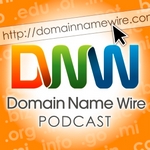Learn the ins and outs of cybersquatting UDRP cases and reverse domain name hijacking.

Podcast: Play in new window | Download (Duration: 39:23 — 31.6MB) | Embed
Subscribe via iTunes to listen to the Domain Name Wire podcast on your iPhone or iPad, view on Google Play Music, or click play below or download to begin listening. (Listen to previous podcasts here.)






good podcast
Good podcast. Thank you for asking the question about surnames and legitimate interest in a domain name. I am still working on the mechanics of suing Michaels Stores under the ACPA for hijacking my michaels.ca domain name and other causes of action.
It is quite understandable that in the days when only .com and .net were available, brand owners and trademark holders would have had serious cause for concern if someone else were to somehow own their trademark.com. These few TLD’s were the only paths to recognition on the world wide web.
Now with two thousand + new TLD’s coming on stream (not twenty, not two hundred, but TWO THOUSAND +), and an almost infinite number more possible, is it fair, or reasonable, to suggest or consider that the owner of a trademarked word, phrase or slogan, a word or phrase which is in common everyday use, should deprive the public, and all of industry, of the right to enjoy and benefit from all 2000+ instances of the use of this word.tld or phrase.tld in language that is common to all? Even though the use of those words or phrases is not in relation to the goods or services provided by the mark holder? One can understand that if a mark is inherently distinctive or has acquired secondary meaning, or if the use of it is likely to cause confusion, then the mark owner has a right to vigorously fight infringement. But short of this, it is neither fair, nor reasonable to restrict its use.
Policy and decisions on this issue should not be based solely on the ability of a trade-mark holder’s willingness to go after a registrant of their trademark, but should be a general policy that governs all marks and all domain registrations.
Here’s what to consider when developing policy:
There are hundreds of thousands of words and phrases of our language that have already been trademarked.
Applications for trademark registrations will go on for infinity, but words and phrases of our language are very limited. What happens forty years from now? Will there be any words left for use as web-addresses by the millions of new businesses born each year if all are trademarked?
It is immaterial whether or not that word or phrase is appended by a .URL; a .URL is just a signal that this is an address on the web.
If policy would disallow use of basic English words or phrases or slogans in all instances of use as a .URL or a #Hashtag (same result for both), then that policy would severely cramp the use of that language for business expression, and in the long term, do great disservice and harm to all of industry.